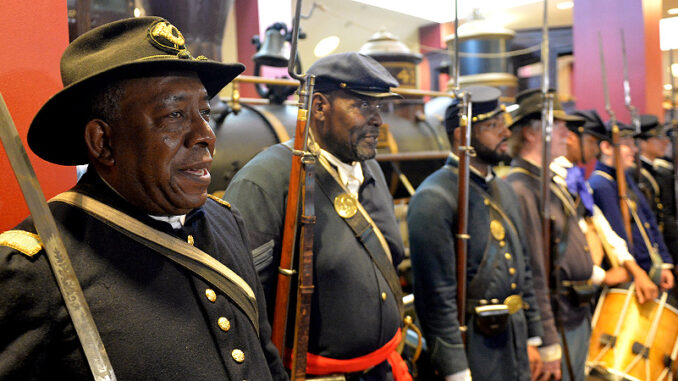
![Proclamation of Emancipation. Library of Congress, Prints and Photographs Division [LC-DIG-pga-02130].](http://mhebtw.mheducation.com/wp-content/uploads/2015/06/062215_01P_INT-242x300.jpg)
While this was an important moment, declaring an end to slavery was only an idea until Union forces won the Civil War and took control of the Southern states. Only then could they put emancipation into action. The war ended when General Robert E. Lee surrendered to General Ulysses S. Grant at Appomattox Courthouse, Virginia, on April 9, 1865. Still, word of the war’s end didn’t spread instantly across the war-torn nation. The news did not make it to Texas, the westernmost state of the country, for another month.
Spreading the News
On June 19, 1865, Major General Gordon Granger and troops of the Union Army arrived in Galveston, Texas, and announced that the Civil War had ended and all enslaved persons were free. The proclamation issued by General Granger—General Orders, Number 3—announced:
“The people of Texas are informed that, in accordance with a Proclamation from the Executive of the United States, all slaves are free. This involves an absolute equality of rights and rights of property between former masters and slaves, and the connection heretofore existing between them becomes that between employer and free laborer. . . .”
African Americans in Galveston, Texas, celebrated their freedom that night with dancing, singing, and feasting. One observer described the celebrating crowd: “[T]housands flooded the streets of Galveston, rejoicing in their newly-announced freedom. The sweet smell of barbecue smoke filled the air. Dancing feet pounded the dirt roads and harmonic voices sang spirituals.”
Beyond Galveston
In later years, other Southern cities began their own Juneteenth festivities. In 1867, Austin’s Juneteenth celebration was sponsored by the Freedman’s Bureau—a government organization created during the postwar Reconstruction era to help smooth the transition of freed African Americans into their new lives.
Juneteenth did not become an official Texas holiday until 1980. It has grown in popularity in other places ever since. Typical Juneteenth activities include picnics, parades, barbecues, ball games, and family reunions. It is also a time for people to recount the events of the past. Today Juneteenth represents more than remembering the end of slavery. It also encourages self-development and respect for all cultures.
Related Links
- Visit the official Juneteenth celebration by clicking on this link.
